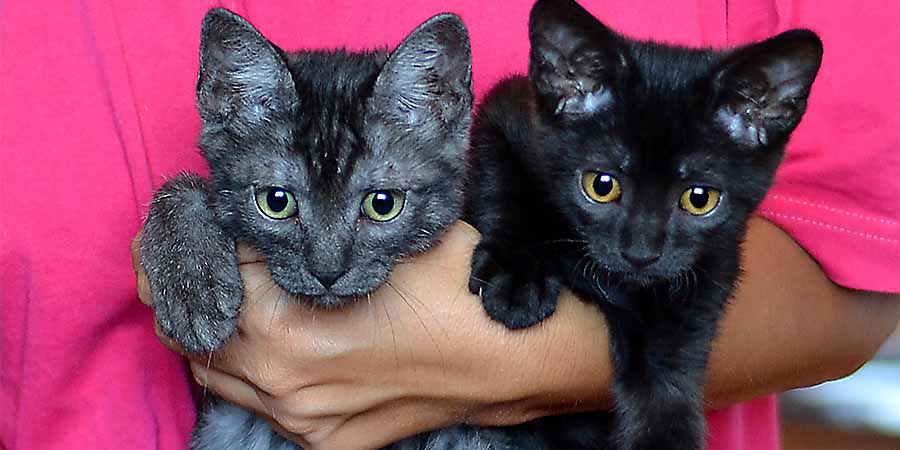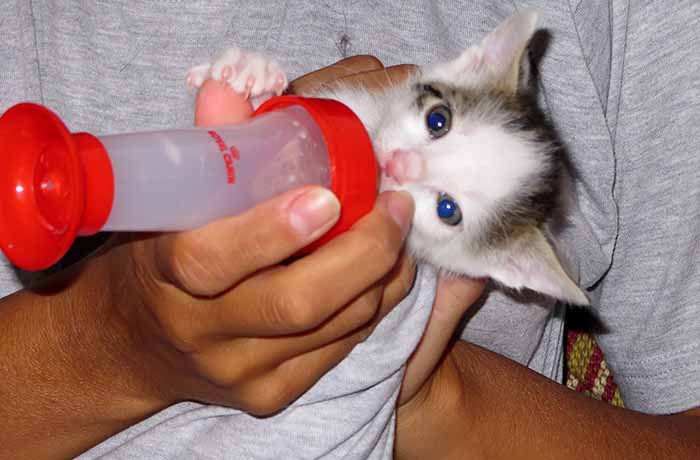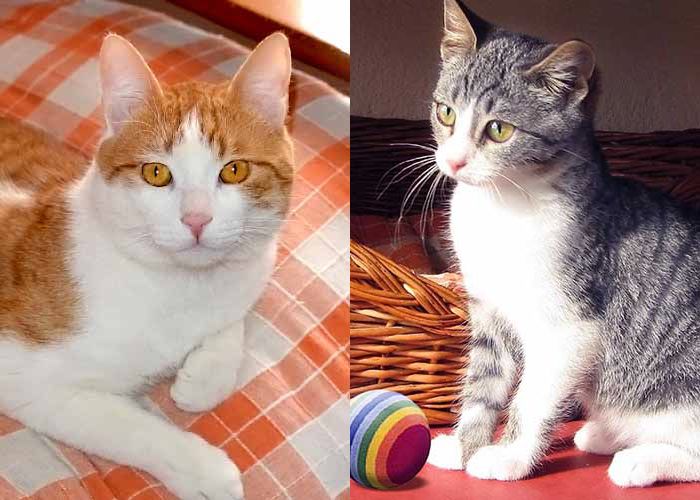

Stray Cat Rescuing

How to care for a rescued kitten
If you have rescued a kitten from the street – congratulations, you have done a good dead! The kitten will get stronger with your help, stand on its paws and after that you can keep it or (when it is 3 months old) you can look for a permanent warm home for him. For starters you should know the following:
The kitten should be brought to a vet for a first examination as soon as possible. The vet will then determine the age of the kitten and give very useful instructions for its diet and future care. If the kitten has fleas, parasites, some infection or a virus disease, the vet will easily and quickly take care of that.
Very small kittens have to be tucked in so that they are warm. They do not have body temperature regulation so they can die of hypothermia. If they cry a lot, tuck them in and cover them over their heads so that they are not afraid.
Very small kittens have to be fed often, during the day every three to four hours, at night the gap can be longer. You can feed them with powder milk for kittens (you can get it at a vet pharmacy) or with a meal you will prepare by yourself:
Basic recipe for feeding kittens, for 1dl of food:
– 1/3 sour cream / fat cream
– 1/3 probiotic yoghurt
– 1 egg yolk, fresh and well washed from egg white, or a piece of butter.
In this mixture add a little infusion glucose (available in pharmacies) or a little honey or sugar. Make sure that the mixture is not very thick, the best density is like dough for pancakes or less. If it is too thick, dilute it with milk or yoghurt.
Every day you need to make a new food. Keep it refrigerated and warm up when needed. Strict hygiene is obligatory. Feed the mixture through a syringe or pacifier for small animals (available in most pet-shops).
Replacement for milk without lactose:
Kittens can not digest milk with lactose. If you can not obtain milk without lactose, please prepare replacement:
– 1/6 boiled water
– 2/6 sour cream / fat cream
– 3/6 probiotic yoghurt
Quantities for feeding kittens:
– Week 1: 7 meals per day, 2ml – 4ml each
– Week 2: 6 meals per day, 5ml – 10ml each
– Week 3: 5 meals per day, 10ml – 15ml each (may gradually start to eat from shallow tray)
– Week 4: 5 meals per day, 15ml – 20ml each (may gradually switch to pate and solid food)
Very small kittens do not have a reflex for emptying their bladder and intestines, so for the first part you will have to stimulate them to defecate, the way that their mother stimulates them. A video with clear explanation how to follows:
Those are the basics, and for more instructions please ask the veterinarian.
How to prepare rescued kitten for adoption

If you rescued cats from the street and prepared it for adoption, congratulations – you’ve done a good deed! Here are some basic tips on offering cats for adoption. Remember: if you give a cat to irresponsible person, it will end up on the street again, and your effort was wasted!
Cats offered for adoption should be healthy and well taken care of. If you rescued cats from the street, please take them to vet’s for a complete examination. It is very important that cats are treated and protected against external and internal parasites.
External parasites are fleas and ticks. Fleas can be brought home even on owners’ shoes. Internal parasites are worms and all cats should be treated two or three times a year. Anti-parasitic products are available in good pet-shops.

How to find a good home for a rescued kitten
When they turn two months make nice photos, preferably with a good camera in the daylight so their eyes shine. Write an irresistable accompanying text! Post ads on Facebook groups: Mačke i makoljupci, Mačke u <3, Mačke su naša ljubav and other. Also post ads on classified ads websites: KupujemProdajem, Halo oglasi and other. Do not forget to mention that the cat was examined by vet and is properly vaccinated. Write where is the cat and include your contacts.

When giving a cat, please insist on neutering the cat, and sign the cat adopting contract. You may use Le PETit Cat Adopting Contract form.
